Podcast: Download (Duration: 41:50 — 39.1MB)
Get Notified Of Future Episodes Apple Podcasts | Spotify | Amazon Music | Android | Blubrry | Gaana | TuneIn | Deezer | Anghami | RSS | More
James considers Lloyd Thompson of VirtualDOO.com a model of mental fortitude. So on this occasion he has invited Lloyd to discuss the importance of mental toughness and resilience for entrepreneurs facing the inevitable “storms” of business ownership.
They’ll look at ways to develop mental grit without being the “tough warrior” at all times.
They’ll share their experiences around getting things done with tools such as the Pomodoro technique.
And they’ll speak of the value of community and whitespace as ways to get clarity amidst the challenges of entrepreneurship.
Table of contents:
-
a. Develop a strong positive mindset
b. Mindfulness and relaxation techniques
c. Health and wellness
Mind and body
The success of a business is strongly linked to the ability of its owner to strategize well and make the right decisions. Thus, mental and physical wellbeing are invaluable assets to the entrepreneur.
1. Develop a strong positive mindset
James and Lloyd emphasize the need for a strong positive mindset, acknowledging that challenges are a given in business.
Lloyd suggests gratitude as a powerful tool to rewire the brain towards positivity. The practice of gratitude is ancient and can be as simple as bringing to mind the things you are thankful for, before bed, or a daily thankful prayer. Yet it is profoundly effective in reducing stress and anxiety, and can be a daily ritual that shifts focus to the positives throughout the day.
2. Mindfulness and relaxation techniques
Our experts also delve into mindfulness and relaxation techniques as part of mental resilience. Lloyd underscores the importance of being able to quickly return to a calm state, as stress can lead to poor decision-making. He recommends using meditation and breathing exercises, such as those found on mindfulness apps, to achieve calmness rapidly.
Lloyd also suggests the “power pose” as a physical way to regain composure and readiness, highlighting the psychological benefits of adopting a posture that promotes confidence and calm.
3. Health and wellness
Physical health and wellness are another critical component of mental toughness. Lloyd and James have both experienced the significant impact of regular physical activity on their mental and physical health, creativity, and productivity. They advocate for integrating exercise into daily routines, something James does with the help of his friend Zac Mason. Physical activity is highly instrumental in combating stress and maintaining a healthy state of mind and body.
Lloyd suggests that neglecting wellness could lead to dealing with illness later, at much greater expense. Investing in physical health is an investment in overall well-being.
Running your business
On the topic of the actual business day to day, Lloyd and James discuss strategies for effective business management and productivity.
1. Getting stuff done
Lloyd advocates for the “big three” approach to task management, where before going to bed, a business owner writes down the three main tasks for the next day and circles the most important one. This method primes the subconscious to start tackling the tasks overnight.
Additionally, physical tools like a sand timer can help overcome inertia and keep focus on the task at hand, following the Pomodoro technique.
Lloyd also recommends breaking down larger tasks into smaller, manageable pieces to begin making progress, a concept known as Kaizen.
2. Success or a lesson
Lloyd touches on the importance of remaining knowledgeable in business. He encourages business owners to stay informed about new market trends, such as AI, and to take small innovative steps, like experimenting with new tools or practices.
Personal development, like listening to audiobooks during downtime, is also mentioned as a way to continually upgrade one’s skills and knowledge.
3. Continuous improvement and adaptability
In line with Kaizen, consistent if small improvements every day are critical for staying ahead in business.
Lloyd suggests encouraging innovation within teams and sharing knowledge gained from books and other resources on social media.
James adds to this by sharing his practice of applying and teaching what he learns, emphasizing the need to train continuously and improve. He also talks about using AI to assist with tasks like creating YouTube video outlines, demonstrating the practical application of staying current with technology to maintain a competitive edge.
“On” your business
Lloyd and James also look at strategic approaches to working on rather than in the business, emphasizing the importance of community and mentorship, scheduling whitespace, and regular reflection and evaluation.
1. Community and mentors
Lloyd stresses the value of being part of a community or having a mentor, especially as entrepreneurship can be a lonely endeavor. Having a network of peers for feedback and soundboarding can prevent mistakes and provide support during challenging times.
James expands on this, advocating for personal connections beyond business and sharing ideas in a judgment-free space, something a previous guest Jaemin Frazer speaks of.
2. Scheduling whitespace
Whitespace, or downtime, is critical for both avoiding burnout and identifying gaps in the business. James has experienced for himself that scheduled time away from work can reveal which parts of the business overly depend on the entrepreneur, allowing for process improvements that lead to a more self-sufficient operation.
Lloyd also suggests using this whitespace to focus on tasks that one enjoys, leading to a more fulfilling work life where vacations aren’t an escape from work but a part of a balanced life.
3. Reflect and evaluate
It is crucial for a business owner to regularly reflect on the business and its alignment with their initial goals for entering into entrepreneurship.
Lloyd advocates for a 90-day review process to ensure the business is serving the entrepreneur’s desired lifestyle, including personal relationships and health.
James reinforces the need for a holistic approach to life and business, monitoring various life aspects and not solely financial metrics.
They both agree that such reflection can renew motivation, provide perspective on progress, and help steer future goals and strategies.
In ending, James reemphasizes the need for “practicing in the offseason” if one wants to achieve mental toughness. For him, this is continuous refinement and improvement, and passing on the lessons to the people who need his help.
Liked the show? Enjoy all the episodes when you subscribe on iTunes
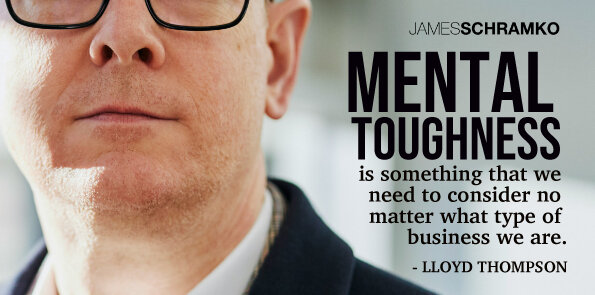
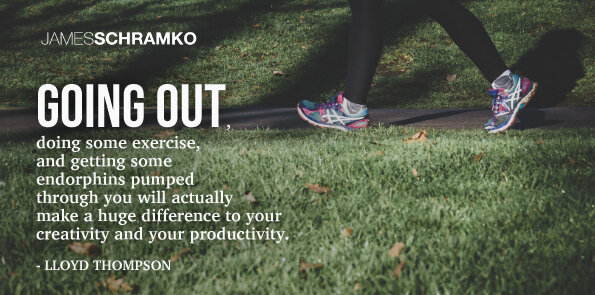
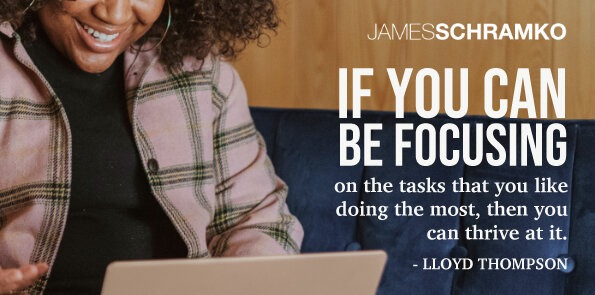
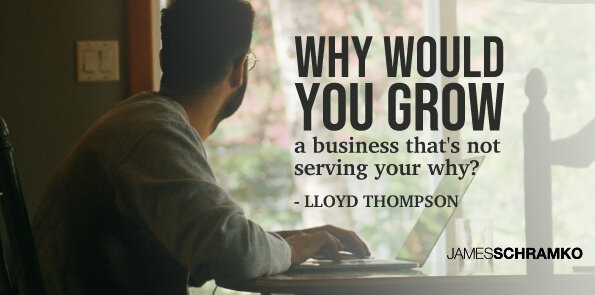

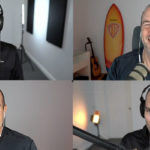







Leave a Reply